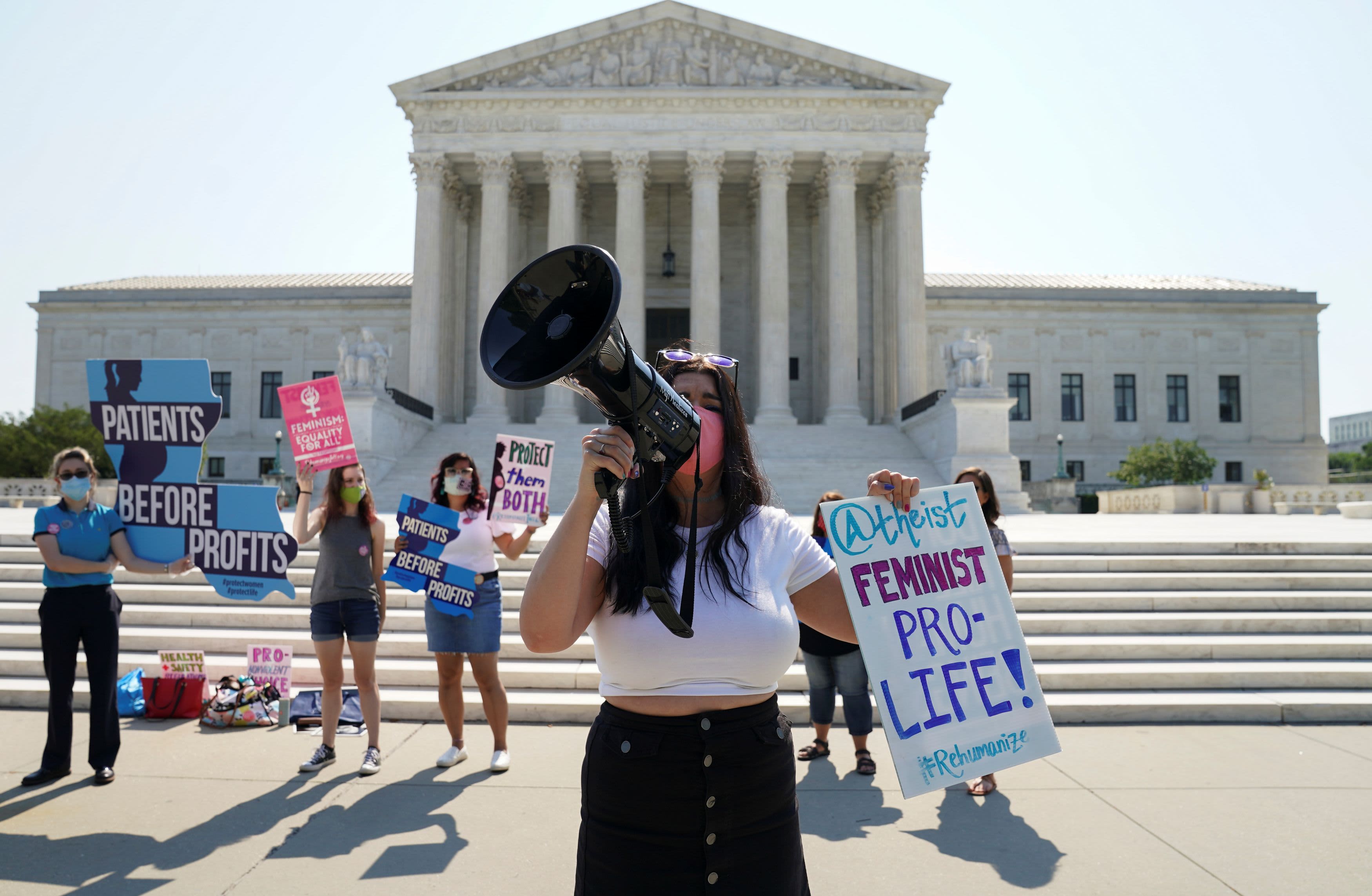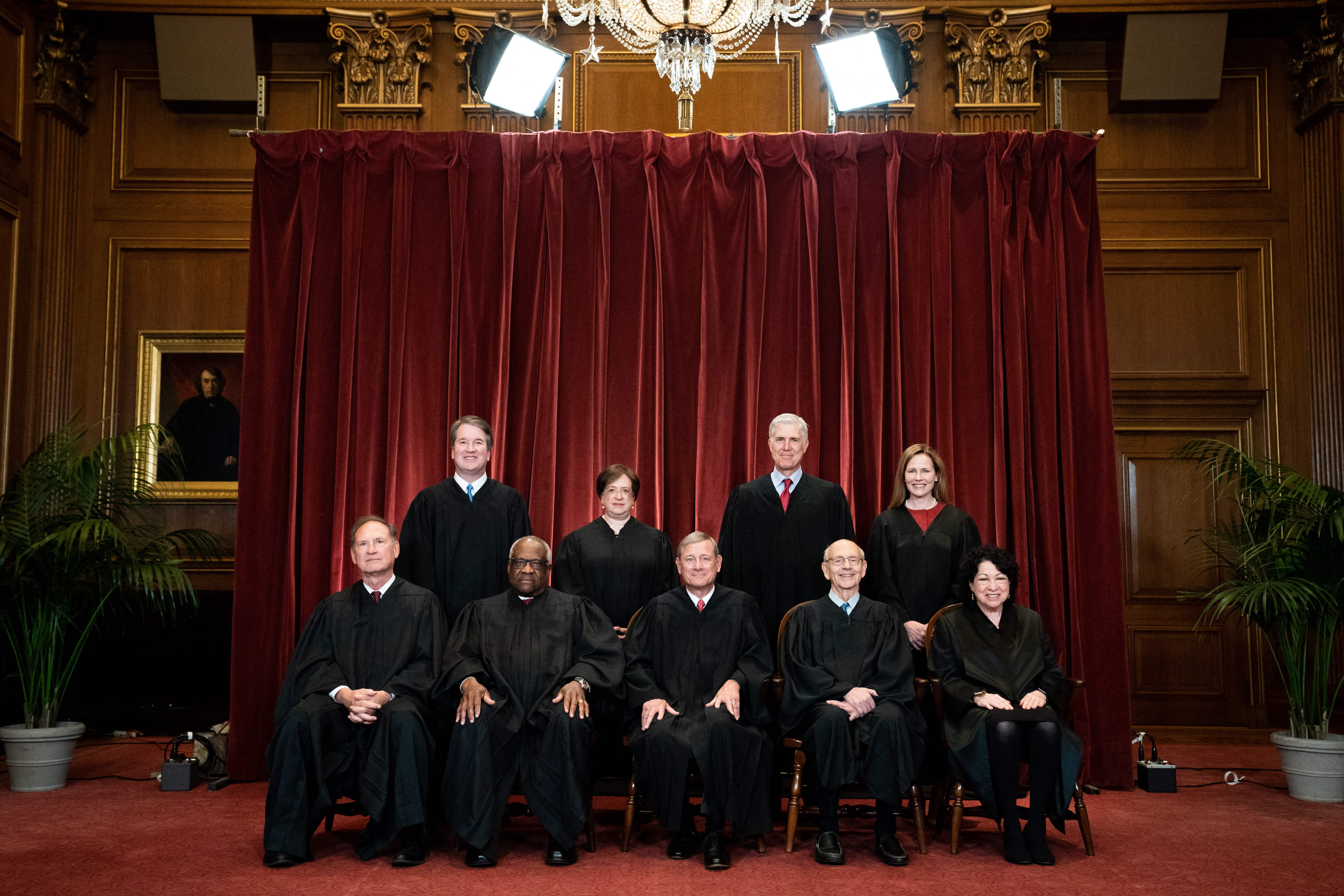In a decision that will reverberate throughout the country, the Supreme Court on Friday overturned the 1973 Roe v. Wade ruling that guaranteed people the right to an abortion.
The decision, unthinkable just a few years ago, was the culmination of decades of efforts by abortion opponents, made possible by an emboldened right side of the court that has been fortified by three appointees of former President Donald Trump.
The ruling came more than a month after the stunning leak of a draft opinion by Justice Samuel Alito indicating the court was prepared to take this momentous step.
It puts the court at odds with a majority of Americans who favored preserving Roe, according to opinion polls.
Get Philly local news, weather forecasts, sports and entertainment stories to your inbox. Sign up for NBC Philadelphia newsletters.
How might such a monumental ruling affect abortion access in states like Pennsylvania, Delaware and New Jersey? Here's a look.
Roe v. Wade Overturned: What Might Pa. Republican Lawmakers Do?
Two female Republican lawmakers, one in the state Senate and one in the state House, late last year introduced identical bills that would restrict abortion in Pennsylvania through a constitutional amendment.
Both argue that the right to an abortion is not guaranteed anywhere in the constitution.
"The policy of Pennsylvania is to protect the life of every unborn child from conception to birth, to the extent permitted by the Constitution of the United States. Nothing in this Constitution grants or secures any right relating to abortion or the public funding of abortion," both bills, introduced by state Sen. Judy Ward and state Rep. Donna Oberlander, read. "Nothing in this Constitution requires taxpayer funding of abortion."
A constitutional amendment is one of the ways to change state law through adding language to the state constitution, and can only be done through referendums voted on by Pennsylvania voters.
By adding that language to the Constitution, it would make it significantly more difficult for future Legislatures to pass laws granting access to abortion, particularly with an state funding or support.
How Does a Pa. Constitutional Amendment Banning Abortion Get Passed?
Both chambers of the Pennsylvania General Assembly would need to approve a resolution in support of the anti-abortion amendment. They would then need to approve the same resolution a second time. As for the current resolutions introduced by Ward and Oberlander, neither have been approved by committees. Committees must debate and approve bills before the full legislature votes on them. In the case of the Senate bill introduced by Ward, her legislation was actually tabled on April 22. That means the committee chairperson decided not to hold a vote on the bill.
But if anti-abortion legislation ever did get two approvals from the full legislature, the Pennsylvania secretary of state is then obligated to put a ballot question on the next statewide Election Day that is no less than three months after the resolution is approved.
Ward and Oberlander, the Republicans who have sponsored the current resolutions, already have language ready for a ballot question. Voters would get to vote yes or no to the following:
"Should the Pennsylvania constitution be amended to say the following?
"The policy of Pennsylvania is to protect the life of every unborn child from conception to birth, to the extent permitted by the Constitution of the United
States. Nothing in this Constitution grants or secures any right relating to abortion or the public funding of abortion. Nothing in this Constitution requires taxpayer funding of abortion."
Republican state lawmakers in Pennsylvania have recently begun using ballot questions as a way to circumvent the veto power of the Democratic governor.
Voters have approved 22 ballot questions in a row, dating back more than two decades. In fact, going back to the 1960s, Pennsylvania voters have approved 94% of all ballot questions.
Can Pa. Republicans Pass an Abortion Ban without a Constitutional Amendment?
If Roe v. Wade is overturned, a Republican governor and a Republican-majority legislature could ban abortions in Pennsylvania. The 2022 election in Pennsylvania includes the race for governor, with current Democratic Gov. Tom Wolf unable to run again because of term limits.
Democrat Josh Shapiro, the state's attorney general, is the Democratic nominee who will be on the ballot for governor in November. Shapiro has said he would veto any legislation that bans abortion in Pennsylvania.
Roe v. Wade Stories
"I will not let our daughters grow up in a world where they have fewer rights than their mothers and grandmothers had in Pennsylvania," he tweeted Friday. "The stakes in this post-Roe world are clear. Either we’re going to safeguard their right to choose, or it’ll be ripped away with no exceptions."
The Republican nominee for the governor's seat is Doug Mastriano, a state senator from central Pennsylvania.
"Roe v. Wade is rightly relegated to the ash heap of history," Mastriano said in a statement Friday. "As the abortion debate returns to the states, Pennsylvania must be prepared to lead the nation in being a voice for the voiceless.”
He has said he believes life begins at conception and has pushed for a ban on abortions beyond six weeks of pregnancy while in office.
The bill he introduced would ban abortions beyond the time at which a doctor can detect a fetal heartbeat. Under the bill, if a heartbeat is not detected physicians can only perform the abortion if they or another referring physician, using their "best clinical judgment," determine it is necessary.
The bill does not include specific exceptions in the case of rape or incest, or if the health of the mother is at risk.
“The idea that in 2022 we deny science, that we’re still told that it’s a blob of tissue in a mother’s womb – You know, ‘My body, my choice’ is ridiculous nonsense here," Mastriano said in a May campaign video.
What Is NJ Abortion Law? What Is Delaware Abortion Law?
Legislatures in both states passed pre-emptive laws codifying a woman's right to abortion before the Supreme Court overturned Roe v. Wade.
New Jersey and Delaware, which have legislatures controlled by Democrats, are not among 23 states that experts believe could immediately have access to abortion banned if Roe v. Wade is overturned.
Pennsylvania is also not one of those states, but abortion rights groups believe the state would likely fall into that category if a Republican is elected to governor later this year.
NBC10's Rudy Chinchilla contributed to this story.




